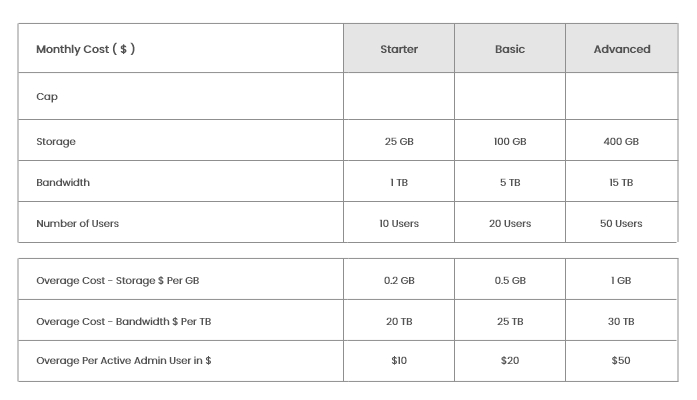



Importance of Mobile First SEO and implementation on Hocalwire CMS
On smartphones there are countless options to engage with potential customers and offer them extraordinary experiences
The world wide web is a strange place, it is so fragmented over the years that it serves and acts different based on context and situation. Similarly the Search Engine Results are optimized not only for desktop browsing but its has a new spin off consideration "The Mobile First Search". New results show up when it is done on a mobile and localization features are used to the best to offer results that offer business conversions. Hence it is important of business to take advantages of the Mobile SEO Optimization techniques. We are here to discuss in detail how Hocalwire enables Mobile First SEO Optimization as a built in feature and reduces the complexities for writers.
What is Mobile SEO and how is it different:
Mobile SEO is fundamentally the process of making websites and pages more searchable and fully viewable on mobile devices. It has the following considerations:
- Comparing mobile and desktop user interactions with search engine results pages (SERPs).
- The differences in intent for the same query across desktop and mobile.
- Technical considerations include making sure Googlebot Mobile can crawl a page.
- Making sure that sites load quickly and don't contain any data-draining items, including bloated graphics or extra scripts.
- Incorporating user-friendliness guidelines for mobile content access and delivering the greatest visual experience.
Importance of Mobile SEO for a long run:
When the percentage of people using mobile devices to access the internet globally hit 50%, mobile search became increasingly popular. 4.28 billion people use a mobile device to access the internet, making up the majority of people in the globe. 90% of all internet users use a mobile device to access the internet. Making sure a page is crawled, rendered, indexed, and ranked is the first step in mobile SEO. The user path and purpose are also included, and this is where understanding the differences between mobile and desktop search can really help with SEO efforts. On different devices, the same query may yield different results, therefore understanding the user's motivation at a particular moment of their trip is important.
Implementing Mobile First SEO Techniques in Hocalwire:
- Separate URLs: Early mobile site versions were created on a unique m-dot domain, like m..com. When a person accesses a website via a desktop browser, mobile device, or tablet, the site will attempt to detect their access method and deliver the appropriate version of the site. Since this arrangement necessitates maintaining content for two versions, it is not advised. Additionally, it has been stated that m-dot sites contain issues that won't be repaired, so sites should be switched off of this setup. Hocalwire lets you define unique URL to each story and serves the story by detecting the origin request device. With a extensive front end framework we can serve separate pages and views if needed all from a same domain.
- Dynamic Serving: One URL contains the content, but depending on the browser or device being used by the user, the page displays alternative HTML and code. This setup is not advised because it serves many versions of the code, making it more challenging to maintain due to potential version variations. We will be able to offer the same content with one code base so our Headless CMS takes care of rendering the content as per the target device. Hocalwire makes it easy to serve dynamic content with just one singular code base.
- Making a Responsive Web Design: The responsive technique, which Google supports, is the simplest way to provide a website to both desktop and mobile users. The same HTML and code are utilised for multiple devices and the content is present on a single URL, but each device renders it differently. The "viewport" tag and responsive design changed the game for the majority of developers when they were introduced. The ability to control a desktop and mobile version using CSS and HTML made things considerably simpler. Hocalwire CMS runs on NodeJS in the back-end and adopts React Framework to deliver front end components to build responsive web pages.
- Progressive Web Apps for the masses: A PWA is a website that resembles an app in design but isn't a completely native "app" that must be downloaded from the App Store. A progressive web app has the advantage of having a single codebase that can support all devices and browsers. They are incredibly quick, making them ideal for where search seems to be moving. Because Google treats PWAs the same as HTML sites, the PWA framework won't help you in and of itself. Consideration of moving to a PWA should be based on whether it best meets your content delivery needs.
Hocalwire CMS offers native applications powered by React Native if you want a dedicated Application, otherwise we can render our website as a PWA and still offer similar experience and benefits, bypassing the App Store
Mobile Usability and Mobile First Indexing:
Hocalwire CMS is designed to elevate the mobile experience which enables the web crawlers and search engines to easily index mobile sites forts. They offer an technical advantage unlike any other CMS in the market. Optimizing for mobile should be routine procedure rather than an add-on, as mobile SEO is already considered SEO. Google still uses the mobile page for indexing even if there are more desktop visitors to your site than there are mobile visitors. The results returned when you conduct a desktop search will come from the mobile version of the website that was indexed. The findings presented on desktop and mobile, however, differ in a few ways. Building truly effective SEO tactics requires a grasp of the various intents for the same queries across devices, as we've covered in prior chapters.
Google Discover:
The Knowledge Graph, a network of connected entities with a "strings, not objects" perspective, is where Discover gets its information from. We are transitioning to an entity-based SERP from a query-based SERP. An essential component of SEO and the path Google is taking is understanding entities and the Knowledge Graph. You may think about how your mobile strategy might change in the near future by having an understanding of Discover. The websites and news outlets that are now publishing timely and relevant content will profit the most. However, every SEO should take into account how their content strategy may be affected by the connections between businesses. The Hocalwire CMS editor has indexing features that lists stories directly to be indexed for the Google Discover Feature. We have the same enabled by default across stories and the settings can be reused periodically.
Hocalwire CMS has a carefully curated list of settings that are automatically updated to meet the Google Update cycle to its search engine. The mobile SEO implementation is an out of the box package we offer as a benefit to our customers. Book a Demo now to see how Hocalwire can help in creating a wonderful mobile experience from your existing codebase

